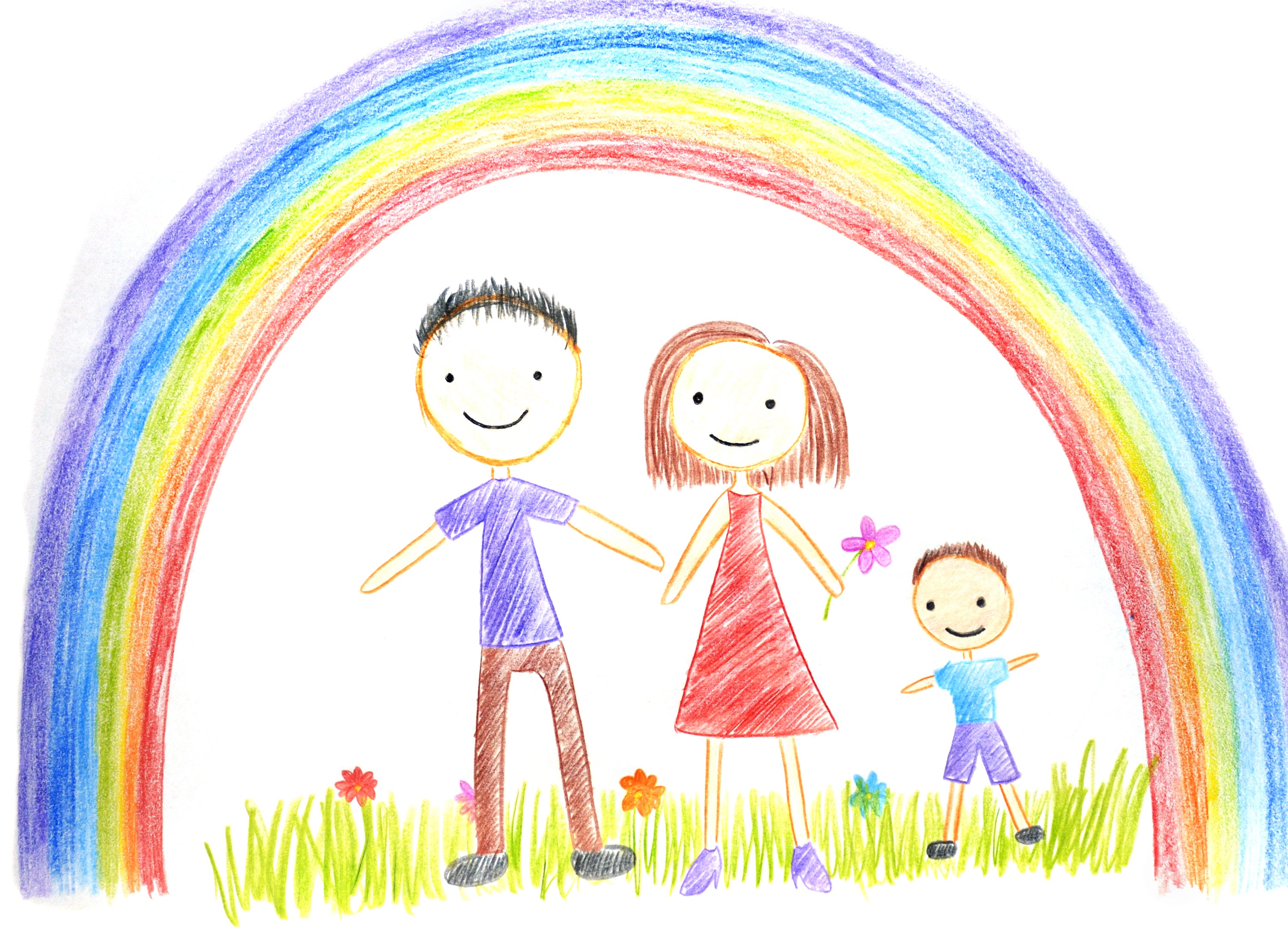The Michigan Longitudinal Study (MLS)
 The Michigan Longitudinal Study (MLS) began in l999, when we received five years of funding from the National Institute of Mental Health. The MLS was designed to intensively examine the behavioral development of three-year–old boys and girls across the transition to school. The preschool years offer a window into the development of core competencies that form the foundation for social, emotional, and cognitive adjustment across the lifespan: self-regulation and understanding of others’ thoughts and feelings. Because these core competencies develop rapidly across the preschool period, it is normal for children to struggle with issues such as control of aggression. Most children learn to control their aggressive impulses by the time they enter school. However, many preschoolers with early self-regulation difficulties continue to struggl
The Michigan Longitudinal Study (MLS) began in l999, when we received five years of funding from the National Institute of Mental Health. The MLS was designed to intensively examine the behavioral development of three-year–old boys and girls across the transition to school. The preschool years offer a window into the development of core competencies that form the foundation for social, emotional, and cognitive adjustment across the lifespan: self-regulation and understanding of others’ thoughts and feelings. Because these core competencies develop rapidly across the preschool period, it is normal for children to struggle with issues such as control of aggression. Most children learn to control their aggressive impulses by the time they enter school. However, many preschoolers with early self-regulation difficulties continue to struggl e with social, emotional and academic problems across long periods of development. In order to help children at risk for long-term difficulties, we must understand the biological, behavioral, and social processes that differentiate preschoolers with normal range adjustment problems from those whose problems persist across time. The main goal of Michigan Longitudinal Study is to illuminate these processes.
e with social, emotional and academic problems across long periods of development. In order to help children at risk for long-term difficulties, we must understand the biological, behavioral, and social processes that differentiate preschoolers with normal range adjustment problems from those whose problems persist across time. The main goal of Michigan Longitudinal Study is to illuminate these processes.
Longitudinal studies are invaluable resources for scholars, policy experts, parents, and teachers because children’s development is tracked across time in relation to formative influences. The MLS has many features that make it a unique source of information about children’s development.  First, there is a multi-method approach to assessment of children’s early self-regulatory competencies and understanding of others. For example, self-regulation abilities are studied using diverse behavioral tasks in the laboratory, parents’ and teachers’ ratings of the child’s skills in different situations, and direct observations of the child’s self-regulation in challenging situations with parents, peers, and siblings. Second, children’s long-term
First, there is a multi-method approach to assessment of children’s early self-regulatory competencies and understanding of others. For example, self-regulation abilities are studied using diverse behavioral tasks in the laboratory, parents’ and teachers’ ratings of the child’s skills in different situations, and direct observations of the child’s self-regulation in challenging situations with parents, peers, and siblings. Second, children’s long-term  adjustment reflects ever-changing and cumulative interactions with the social world. Therefore, we have rich, multi-method assessments of children’s relationships with mothers’ and fathers’ that extend across time, and careful measurement of the types of individual and social characteristics that are linked with optimal caregiving. We also have assessments of children’s peer and sibling relationships in multiple settings and across time. Finally, we have found that both child and parent gender are powerful developmental influences. Therefore, we have followed relatively equal numbers of boys and girls across ages 3, 6, and 10 years, and we have assessed both mother-child and father-child relationships across time. We are now collecting our fourth wave of data on the same children as adolescents.
adjustment reflects ever-changing and cumulative interactions with the social world. Therefore, we have rich, multi-method assessments of children’s relationships with mothers’ and fathers’ that extend across time, and careful measurement of the types of individual and social characteristics that are linked with optimal caregiving. We also have assessments of children’s peer and sibling relationships in multiple settings and across time. Finally, we have found that both child and parent gender are powerful developmental influences. Therefore, we have followed relatively equal numbers of boys and girls across ages 3, 6, and 10 years, and we have assessed both mother-child and father-child relationships across time. We are now collecting our fourth wave of data on the same children as adolescents.
 Longitudinal studies are considered the “gold standards” for information on the development of individuals. They are also time consuming and expensive to manage, and current trends in national funding have shifted away from supporting them. Ours would not be possible without financial support from the National Institute of Mental Health, and the University of Michigan Department of Psychology, LSA Dean’s Office, and UMOR, and the generous contributions of our participant parents, children/teens, teachers, and the undergraduate and graduate students who have collected and coded data.
Longitudinal studies are considered the “gold standards” for information on the development of individuals. They are also time consuming and expensive to manage, and current trends in national funding have shifted away from supporting them. Ours would not be possible without financial support from the National Institute of Mental Health, and the University of Michigan Department of Psychology, LSA Dean’s Office, and UMOR, and the generous contributions of our participant parents, children/teens, teachers, and the undergraduate and graduate students who have collected and coded data.
Culture, Early Child Development, and Psychopathology
Our knowledge of child development is biased: most published studies have been conducted with children growing up in North America, the United Kingdom, Northern Europe, Australia, and New Zealand. It is critical to include children and families who inhabit the rest of the world! Cross-national research in our lab oratory has focused on understanding how young children who are growing up in the United States, Japan, and People’s Republic of China are similar and different in how they develop self-regulation, social understanding, and the ability to adjust to the expectations of their parents and teachers. Studies of countries with contrastive cultural values have strong relevance for understanding the socialization of self-regulation in young children. In 2008 we received funding from the National Science Foundation for a unique cross-national study of self-regulation in preschool-age children, Emotion Regulation as a Complex System (ERCS). The ERCS project is co-directed by an interdisciplinary team from Psychology, Biostatistics, Pediatrics, Public Health, Kinesiology (Twila Tardif, P.I), plus cross-national collaborators, all coordinated through the Center for Human Growth and Dev
oratory has focused on understanding how young children who are growing up in the United States, Japan, and People’s Republic of China are similar and different in how they develop self-regulation, social understanding, and the ability to adjust to the expectations of their parents and teachers. Studies of countries with contrastive cultural values have strong relevance for understanding the socialization of self-regulation in young children. In 2008 we received funding from the National Science Foundation for a unique cross-national study of self-regulation in preschool-age children, Emotion Regulation as a Complex System (ERCS). The ERCS project is co-directed by an interdisciplinary team from Psychology, Biostatistics, Pediatrics, Public Health, Kinesiology (Twila Tardif, P.I), plus cross-national collaborators, all coordinated through the Center for Human Growth and Dev elopment at the University of Michigan. In this study we examined individual differences in children’s early emotion regulation using a novel complex systems approach. The primary aim was to examine processes involved in the regulation of physiological, behavioral, and social systems inherent to emotion expression in 4 y/o boys and girls who were growing up P.R. China, Japan, and the U.S. This project has yielded rich information about cultural similarities and differences in early stress regulation, socialization, understanding of others, and behavior problems (please see Publications).
elopment at the University of Michigan. In this study we examined individual differences in children’s early emotion regulation using a novel complex systems approach. The primary aim was to examine processes involved in the regulation of physiological, behavioral, and social systems inherent to emotion expression in 4 y/o boys and girls who were growing up P.R. China, Japan, and the U.S. This project has yielded rich information about cultural similarities and differences in early stress regulation, socialization, understanding of others, and behavior problems (please see Publications).
In order to understand the development of children’s social and emotional adjustment, we must first understand how adults in their cultures define and interpret undesirable vs. desirable behavior. Cultural norms influence how caregivers define appropriate behavior in young chil dren, their preferred methods of discipline, and the types of causal attributions they make when children violate social expectations, as well as the manner in which children express negative behavior. Parents’ ethnotheories about child development have motivational properties and provide a frame of reference for interpreting and responding to child behavior. Most prior research connecting parenting beliefs with children’s early behavioral adjustment has been conducted with North American samples.
dren, their preferred methods of discipline, and the types of causal attributions they make when children violate social expectations, as well as the manner in which children express negative behavior. Parents’ ethnotheories about child development have motivational properties and provide a frame of reference for interpreting and responding to child behavior. Most prior research connecting parenting beliefs with children’s early behavioral adjustment has been conducted with North American samples.
Although parents’ reports of children’s behavioral and emotional symptoms have been compared across different cultural contexts, most investigators have used translated versions of instruments that have been developed on Western samples.  However, simply translating an instrument into another language does not mean that it has cross-cultural validity. To address these gaps in knowledge, our research group has pioneered in the study of parents’ intuitive beliefs about children’s behavior, including their theories of how desirable and undesirable behaviors are defined and expressed in children of different ages, how child behaviors considered inappropriate should be managed, and how they explain the causes of child misbehavior. Our collaborative studies have included parents of young children growing up in Japan, P.R. China, South Korea, and the United States. Most recently, we are in the midst of interviewing parents in Spain.
However, simply translating an instrument into another language does not mean that it has cross-cultural validity. To address these gaps in knowledge, our research group has pioneered in the study of parents’ intuitive beliefs about children’s behavior, including their theories of how desirable and undesirable behaviors are defined and expressed in children of different ages, how child behaviors considered inappropriate should be managed, and how they explain the causes of child misbehavior. Our collaborative studies have included parents of young children growing up in Japan, P.R. China, South Korea, and the United States. Most recently, we are in the midst of interviewing parents in Spain.
We are deeply grateful for their past and continuing support!







